Mr Siong-Seng Liau
MA, MBChB (Edin), MD (Edin, Distinction), FRCS (Gen. Surg, Edin), FACS
- Specialist Consultant Surgeon in gallbladder, liver and pancreatic surgery.
- Expert in minimally invasive and robotic surgery.
- Trusted for safe, tailored surgical care.
SPECIALIST GALLBLADDER, LIVER AND PANCREATIC SURGICAL CARE IN CAMBRIDGE
Hello and welcome - you are in safe, experienced hands
I am Mr Siong-Seng Liau, Consultant Hepatopancreatobiliary (HPB) Surgeon, with a special interest in gallbladder surgery. Based at Addenbrooke’s Hospital in Cambridge, I have spent over a decade treating patients with gallbladder conditions such as gallstones (biliary colic), gallbladder inflammation (cholecystitis), and other gallstone-related complications using the latest minimally invasive surgical techniques.
My private practice at Spire Cambridge Lea Hospital and Nuffield Hospital is primarily focused on surgical management of gallbladder disease. I also offer consultations for liver and pancreatic conditions, including cancer, though currently, surgeries for these complex conditions are performed through my NHS practice.
Choosing Mr Liau
If you have been told you need your gallbladder removed, or you are suffering from gallstones or related symptoms, it is natural to want the most experienced hands and clear, personalised advice.
In his private practice, Mr Liau focuses on gallbladder disease, offering expert assessment and surgical care that is tailored to your needs and based on the latest clinical evidence.
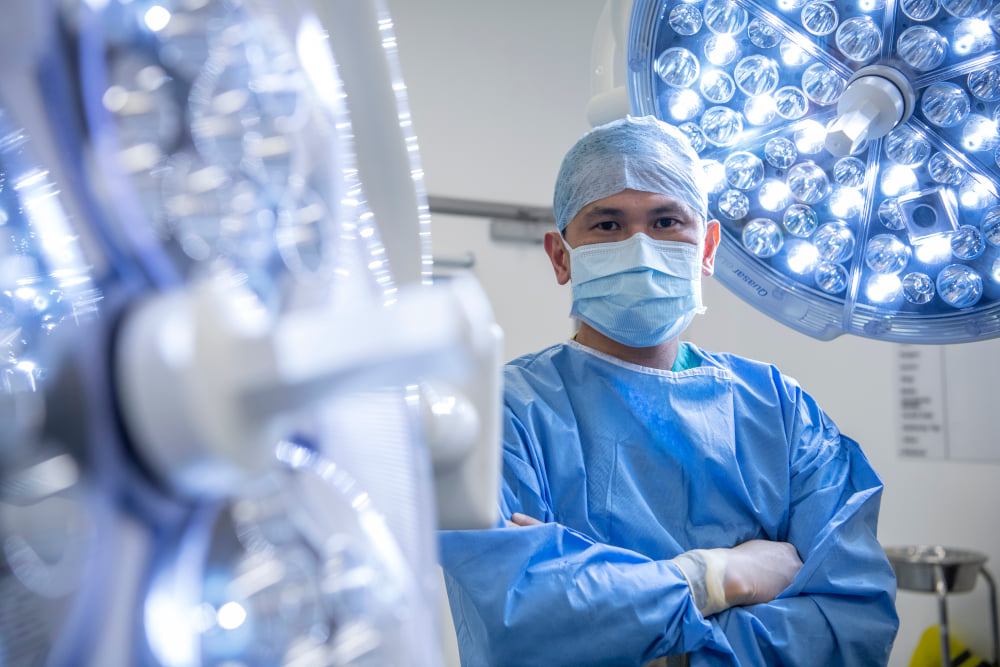
In Safe Hands: Mr Liau’s Commitment to Surgical Excellence
Pioneer in minimally invasive surgery
World-class training – bringing global expertise to local care
Trusted by national and international bodies
Award-winning surgeon and innovator
Leader in service development and author of national guidance
Committed to personalised, evidence-based care
Trusted specialist expertise delivered with care and compassion
“Gallbladder surgery is often straightforward—but when it’s not, I bring a deep understanding of the surrounding anatomy and potential complications. I provide specialist focus to every case, even the routine ones.”
Common conditions treated
Mr Liau regularly treats the full spectrum of gallbladder and bile duct disorders, including:
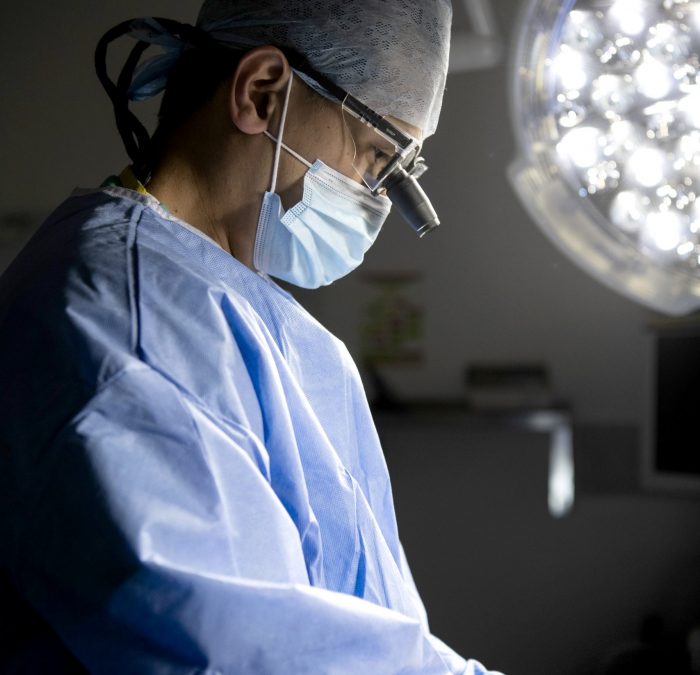
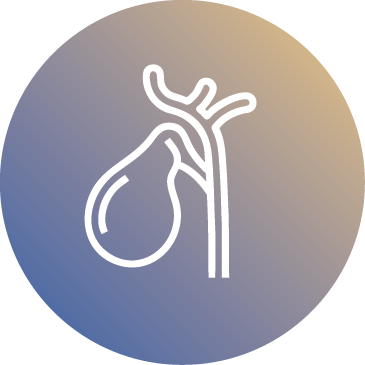
Gallstones (cholelithiasis)

Gallbladder pain caused by gallstones (biliary colic)

Inflamed gallbladder (acute and chronic cholecystitis)

Bile duct stones (choledocholithiasis)

Gallbladder polyps or suspicious gallbladder findings on scans
If you are experiencing pain in the upper right belly (abdomen) especially after a fatty meal, or have had an episode of jaundice, these may be signs of gallstones or bile duct problems. An accurate diagnosis and timely treatment can prevent complications such as infection or pancreatitis.
Early treatment can prevent complications such as infection or pancreatitis, and importantly, if a complication is to occur, the gallbladder disease becomes more difficult or challenging to treat surgically.
Mr. Liau works with all the leading health insurance providers:










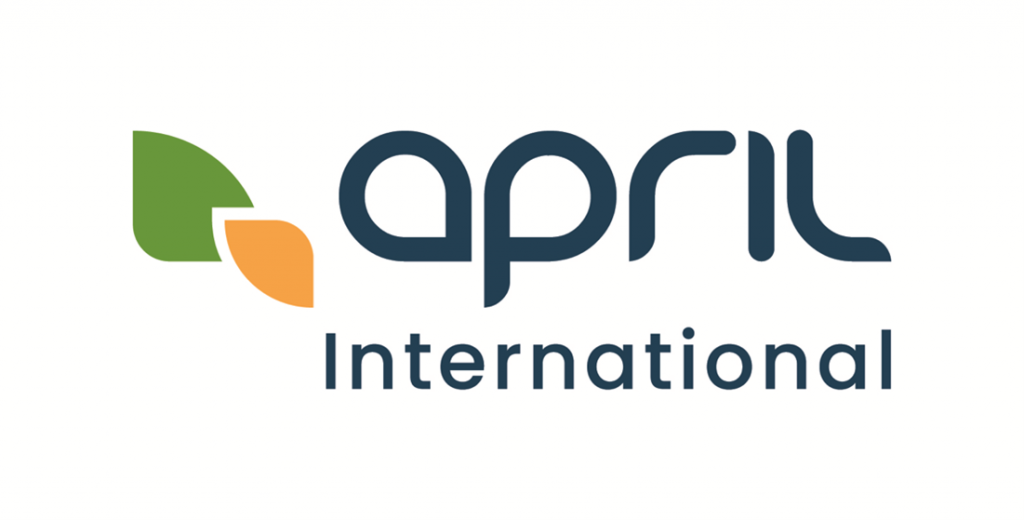



A clear guide to key-hole gallbladder surgery
My goal is to provide clear, honest information, answer your questions, and guide you through the process with care and confidence. Whether you are experiencing ongoing symptoms or seeking a second opinion, I am here to help you make the right decision for your health.
Gallbladder surgery: what to expect
In this guide, you will learn everything you need to know about gallbladder removal surgery, also known as a cholecystectomy.
We will walk you through:
- What is the gallbladder and what does it do
- What are the typical symptoms of gallstones
- What are the differences between biliary colic and other gallbladder conditions
- What is cholecystectomy surgery
- The different types of cholecystectomy procedures
- What to expect during recovery
Recovering from gallbladder surgery
In this guide, you’ll learn what to expect when recovering from gallbladder surgery (cholecystectomy), whether keyhole or open surgery.
We will walk you through:
- Recovery timeline after keyhole and open gallbladder surgery
- Managing pain effectively after surgery
- When and how to resume daily activities
- Caring for your surgical wounds
- Dietary adjustments and digestion tips after surgery
- Practical tips for a smoother recovery
- Signs to watch for and when to contact your surgeon
TRUSTED EXPERT SURGICAL CARE, DELIVERED QUICKLY AND RELIABLY
Start your journey with us today

STEP 1
Contact us
Use the online contact form or call Mr Liau’s secretary to arrange an in-person or virtual consultation at a time that suits you.

STEP 2
Consultation
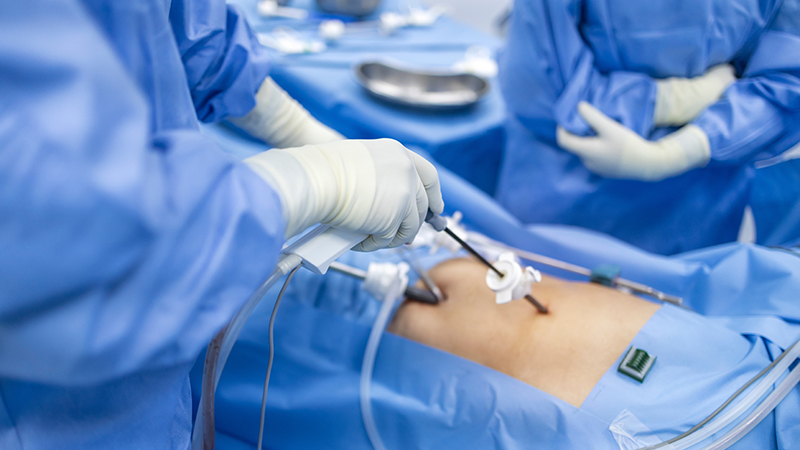
STEP 3
Surgery & follow-up
If surgery is recommended, most procedures are done as keyhole (laparoscopic) cholecystectomy. Recovery is usually quick, with most patients going home the same day or after one night. Follow-up care is arranged to support your recovery.
Patient testimonials

Dr Liau and his team operated on my liver using robotic surgery on 25 June 2025. During my pre-surgery meeting He completely gained my trust in his explanation of how he proposed to operate on my liver and the obstacles and problems that could arise. He also took the time to visit me while I was in recovery telling me that everything had gone to plan and I would make a full recovery. The aftercare team in HDU also deserve praise, nothing was any trouble. I am very grateful that Dr Liau was available to operate on me and allow me to get back on with my family life.
- Written by a NHS patient at Addenbrooke's Hospital

I consider myself very lucky to have been referred to Mr Liau and his team for my gall bladder operation. I was. Put at ease at every stage I was seen. I have suffered from Crohn’s disease for over 30 years . This year I had problems with my gall bladder which came to light after CT and an MRI scan. I was referred to Mr Liau from my local hospital. On the first appointment with Mr Liau even though he suspected cancer I was reassured that if he could remove it by robotic surgery without having to do open surgery he would. He made sure before I left that all my questions were answered and if I had any I could phone at any time. I opted for two weekly follow up appointments by phone. Everyone in this team were very helpful and this put me at my ease. I can say in all honesty I didn’t feel nervous. My operation went ahead and it turned out that my gall bladder was stuck to the liver, it also contained cancer of which I am now about to start preventative chemotherapy. My operation only involved me being in hospital just over 24 hours.I continued with another 3 follow up phone calls untill I got my result. I feel as if I. had first class service all the way from start to finish. I highly recommend him as a first class surgeon.
- Written by a NHS patient at Addenbrooke's Hospital

Having had the most worrying diagnosis of pancreatic cancer, I can only say that Mr Liau and his team made the worst health issue of my life bearable. There was never a moment when I did not feel I was in the best and most caring of hands..
I actually looked forward to my appointments with Mr Liau. His gentle and courteous manner, his openness and his genuine interest in my progress made a huge difference to my peace of mind.
Of course, beyond this human interaction, was the remarkable success of my robotic surgery in the hands of the incredibly skilled Mr Liau.
I believe he saved my life.
- NHS patient at Addenbrooke's Hospital

From the initial phone call the i would be a perfect candidate for robotic surgery, I cannot fault the amazing service I received. The first meeting to explain what the potential risks and the rewards of the surgery was explained fully. The day of the operation, the front desk staff checking me in and then taking me to my bed to wait everything was checked and double checked. My first meeting with the anaesthetist, how he explained what they were planning to do for the robotic surgery along with the preparation in case it went to open surgery. I was kept updated with wait times on the day and a second conversation with the antithesis to confirm when surgery would be that day.
I then met Mr Liau and went over the procedure. The team then reassured me and then I woke up and was ecstatic to find out that the surgery was a success and competed by robotic surgery.
I followed the care plan by the hospital, and was back to light work 3 days later, in which was my main concern of not wanting the operation done in case it was converted to open surgery.
I cannot recommend Mr Liau highly enough and his team around him for all that i have received.


